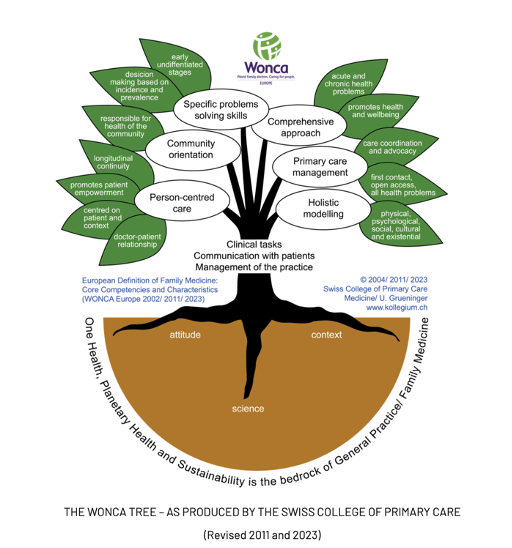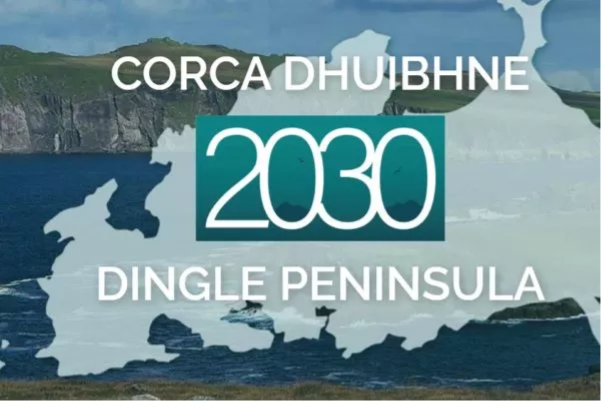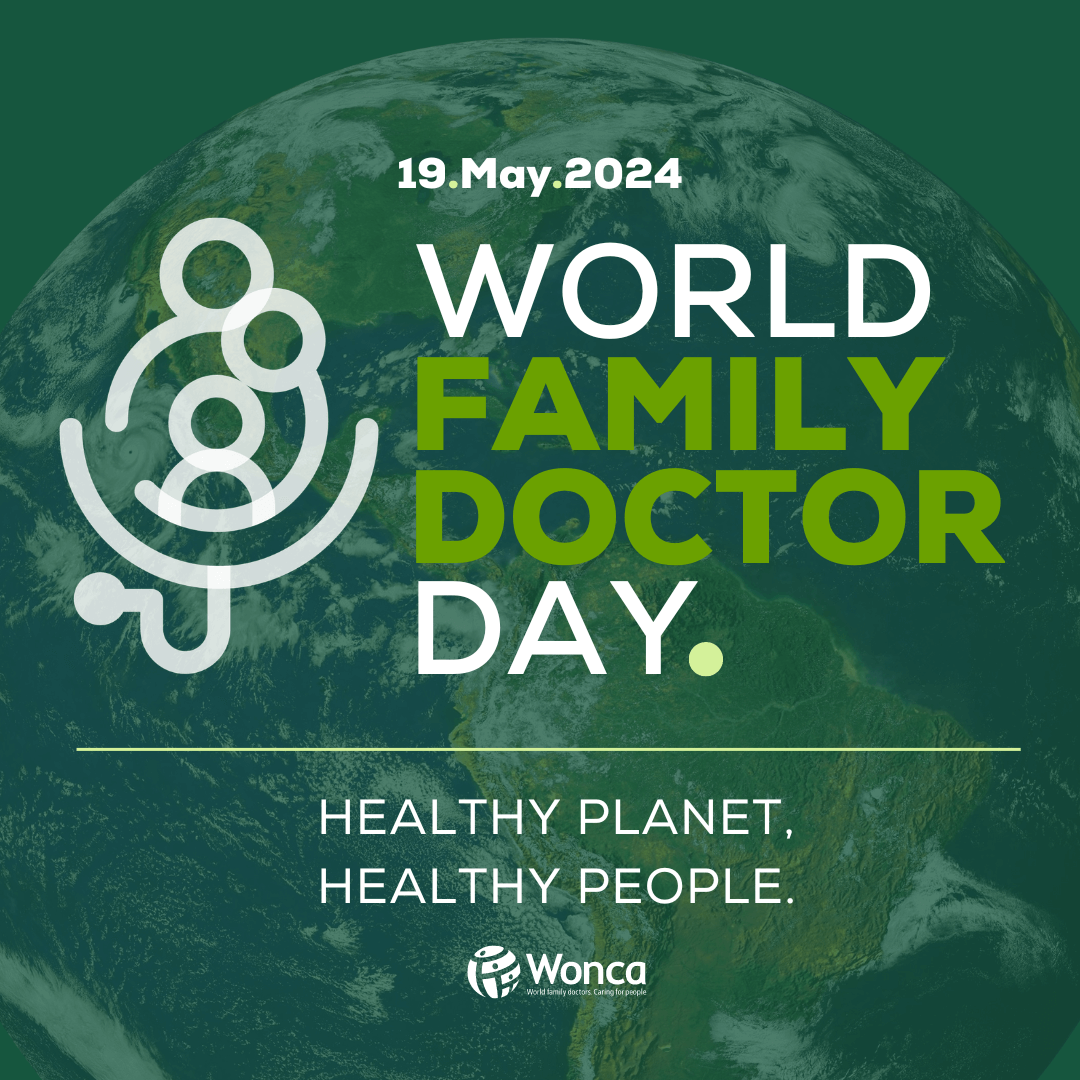Sean Owens, Ireland
What is our Vision of Net Zero?
What do Adidas, Shell, Nestle, and Volkswagen have in common? At first glance, you might say “not much.” Yes, they all have egregious carbon footprints, a shady history of reporting their environmental indiscretions, and questionable human rights records. But like all major companies and corporations, they utilize technology to meet their targets and they all have a vision that they consistently work towards.
Does the modern healthcare sustainability movement have a shared vision of Net Zero that we are working towards? What does Net Zero healthcare look like? What technologies could we employ to get us there on our own terms?
Unhealthy Lifestyles Unhealthy Planet
There are major similarities between the healthcare crisis and the climate crisis; they are both driven by our consumptive lifestyles; they are both a result of covert and overt commercial and social determinants of health; a confluence of industry policy and increasingly academia ensure that the status quo remains unchallenged; addressing these twin crises will necessitate societal behaviour change.
Unfortunately, modern healthcare routinely ignores social and commercial determinants of health, instead blaming poor people for being born into poverty, blaming people for living with obesity while living in a toxic food environment, and blaming people for using fossil fuels in a society utterly dependent on them.
Indigenous Thinking
Rather than endlessly pitting ourselves against these commercial giants, perhaps we could learn from them? The technologies used by indigenous communities allowed them to live in harmony with the natural world for multiple generations. These technologies, albeit primitive, were no less complex and centered around language and storytelling. The technology of language and storytelling allows how we consider our values beyond GDP and the markets to instead give value to the natural world, to our elders, and to generations yet to come. To give culture and community greater agency in our decision making. This includes health but so much more.
 This is not a call for a return to the stone age; in fact, this is the essence of Kate Raworth’s Donut Economics, which says that we can have an economic system but it has to respect social and planetary boundaries. The world federation of family doctors has now revised the definition of primary care from a tree to a tree that sits in bedrock. That bedrock is One Health, Planetary Health, and Sustainability, and it is now wedded to the healthcare that we provide. The former Bank of England governor Mark Carney wrote a different book with the same message; i.e., “Values.” The technology we need is how we talk together. We need healthcare to speak to one another about the opportunities for health with climate and nature and sustainability actions. We want to reach through the siloes. This is not new; it is within us, innate; we just need to seize it.
This is not a call for a return to the stone age; in fact, this is the essence of Kate Raworth’s Donut Economics, which says that we can have an economic system but it has to respect social and planetary boundaries. The world federation of family doctors has now revised the definition of primary care from a tree to a tree that sits in bedrock. That bedrock is One Health, Planetary Health, and Sustainability, and it is now wedded to the healthcare that we provide. The former Bank of England governor Mark Carney wrote a different book with the same message; i.e., “Values.” The technology we need is how we talk together. We need healthcare to speak to one another about the opportunities for health with climate and nature and sustainability actions. We want to reach through the siloes. This is not new; it is within us, innate; we just need to seize it.
What about a Vision for 2050?
Irish Doctors for the Environment and the Irish Climate and Health Alliance are collaborating to run a marathon in 2024. Why? In 2019, Ireland became the second country in the world to declare a climate emergency, has since made legally binding obligations to become Net Zero by 2050, and has published plans on how to get there. Where? Dingle, Co Kerry, an area of outstanding beauty and a vibrant community that has already started its journey to Net Zero.
The problem is we aren’t doing nearly enough quickly enough. Healthcare organizations are increasingly asking for action on Net Zero, i.e., clean energy, sustainable food production, active travel, etc. The reason? Climate and biodiversity loss represents the greatest threat to health in the 21st century. This also means that addressing Net Zero issues represents a generational opportunity for health:
- Active travel is a can’t miss opportunity for mental and physical wellbeing, a way of engineering “the magic pill” exercise into our daily lives. This at a time when our collective national health has never been more challenging.
- Sustainable diets would address the number one driver of chronic disease in Ireland while reducing pressure on biodiversity, emissions, waste, and also improving our own food security.
- Reducing fossil fuel emissions simultaneously reduces air pollution, which is responsible for a significant burden of death and disease in Ireland, while simultaneously improving our long-term energy security.
What is Net Zero?
Defined as “completely negating the amount of greenhouse gases produced by human activity,” terms such as Net Zero don’t really tell us anything about what this future may look like. Fossil fuels, the major drivers of emissions, are non-renewable and are being extracted and consumed at ever increasing rates. Net Zero is a certainty. The question is whether we want to meet this future on our own terms. How will we manage this transition? Now or later? What is the health opportunity lost if we don’t invest and make the changes needed now?
Net Zero can also be an opportunity for Ireland to show international leadership for healthy vibrant communities in every part of Ireland, for energy sovereignty, for cleaner air, for greater food security, and for generational health. Or Net Zero can be an eventuality that is imposed upon us with the natural systems upon which our health depends irreversibly undermined.
Dingle, Co Kerry: Wild and rural Atlantic Ireland
Beyond windfarms and cycle lanes, one of the main and often overlooked ingredients to a sustainable future lies in healthy vibrant communities. Besides its outstanding natural beauty, there are a host of reasons to choose Dingle as a vision to aspire to:
- Dingle is a music, arts, and culture hub.
- Dingle is thriving with sports and recreation.
- Dingle is an internationally acclaimed gastronomy hotspot.
However, under the hood there is lots more going on. In 2018, the Dingle Peninsula 2030 project was launched with an aim to help create a sustainable future for the peninsula, working with the local community, schools, businesses, and farming sectors to support the societal changes required for a low carbon transition.
We need a shared vision
Climate Science has been clear for decades. Ireland is a world leader in climate policies, proposals, and plans; we don’t need any more. Now we need the arts, sport, culture, media, and more to help paint a picture of what we should work towards.
This vision could be Dingle, Durban, or Darwin. What matters is that a healthy and sustainable future looks and feels like vibrant and safe communities full of culture, activity, green and blue spaces where health and nature go hand in hand.

The Ask is clear
We need our politicians to show leadership and to enact the policies we already have in place. The Ask is to reimagine Net Zero not as a chore or an impossible ideal but as a can’t miss opportunity for health. Time isn’t on our side.
Net Zero is a marathon and a race.
 This is part of a series of articles written for World Family Doctor Day, 19 May 2024, on the theme "Healthy Planet, Healthy People".
This is part of a series of articles written for World Family Doctor Day, 19 May 2024, on the theme "Healthy Planet, Healthy People".